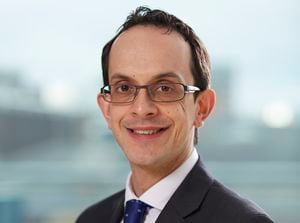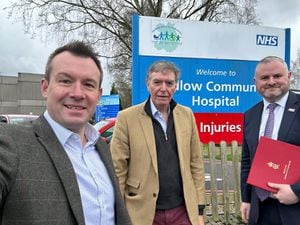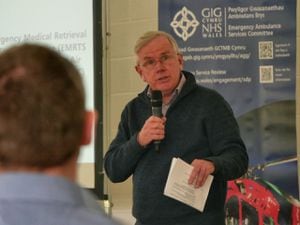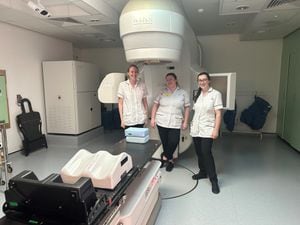Shropshire maternity scandal: Law firm calls for group action scheme to deal with patients' cases
Lawyers representing some of the families affected by failings in maternity services at Shropshire's main hospitals are asking the trust to investigate setting up a special group actions scheme to ensure cases are reviewed as quickly and efficiently as possible.

It comes as law firms have reported that more families have come forward with concerns about maternity care at Shrewsbury and Telford Hospital NHS Trust (SaTH), following a report being leaked last week.
An independent inquiry, ordered by the government in 2017, is looking into the concerns stretching back 40 years.
The interim report by maternity expert Donna Ockenden details a catalogue of concerns and reveals that dozens of babies and mothers are thought to have died or been left disabled due to poor care at the trust, which runs Royal Shrewsbury Hospital and Telford's Princess Royal Hospital.
In depth:
Law firm Irwin Mitchell is working with 21 people who say they have suffered as a result of failings in maternity care at SaTH.
Now with more families coming forward, the law firm has written to SaTH calling for a meeting to discuss the best way to process the volume of cases.
It is asking the trust to set up a co-ordinated scheme to investigate all legal cases.
The firm says this would allow complaints to be dealt with as quickly and efficiently as possible and in a consistent manner, for example by using the same cohort of medical experts agreed up front on all cases.
Irwin Mitchell says it has pioneered similar successful schemes with the NHS where individual or hospital trusts have been facing multiple claims.
These have included patients affected by breast cancer surgeon Ian Paterson, orthopaedic surgeon Manjit Bhamra in Rotherham, gynaecologist Rod Irvine in London, and gynaecologist Rob Jones in Cornwall.

Tim Annett, a partner and specialist medical negligence group actions lawyer at Irwin Mitchell, said: “As more detail continues to emerge about maternity services at Shrewsbury and Telford hospitals the more concern there is among patients.
“We are continuing to hear extremely worrying first-hand accounts from families caught up in this scandal, the scale of which appears to be truly shocking.
“We are now investigating these concerns and are determined to establish answers for the families as quickly as possible.
“We have written to the NHS trust today calling for a meeting to discuss the escalating situation and have invited it to investigate setting up a scheme to deal with all cases.
“We have worked with the NHS previously on similar schemes.
Grieving
"Such schemes have provided consistency in terms of how complaints have been investigated and reassurance to those affected that their cases have been taken seriously. Through the NHS working with us legal cases have concluded more swiftly, allowing families to try and look to the future as best they can, and it has been possible to avoid the uncertainty, additional distress and cost associated with litigation.”
The inquiry, which is now looking at more than 270 cases from 1979 to the present day, was ordered by the government in 2017.
It came after concerns were raised by grieving parents Rhiannon and Richard Stanton-Davies, and Kayleigh and Colin Griffiths.
They had contacted the-then Health Secretary Jeremy Hunt over 23 cases, including those of their daughters, Kate Stanton-Davies, and Pippa Griffiths, who died shortly after being born in the trust’s care.
Cases include stillbirths, deaths during pregnancy, deaths of babies shortly after delivery, deaths of mums, cases of substandard care as well as birth injury cases such as cerebral palsy and other brain injuries.
The trust's interim chief executive Paula Clark said her staff had not seen the findings of the interim report, but have been acting on evidence from previous cases.
She has also apologised to the families who have been affected.
She added: “We are open to exploring any way of minimising the anxiety of any families that have been affected.”





